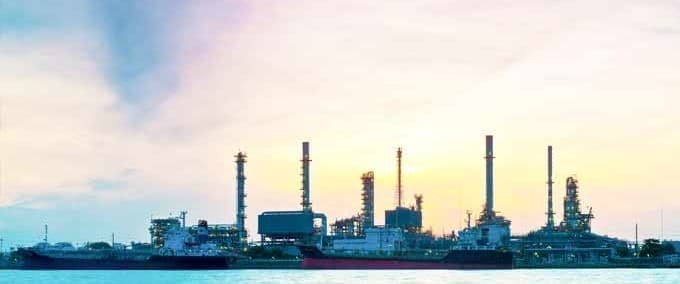
The last two decades of extreme underperformance and numerous false starts by European stock markets have left investors despondent and pessimistic. The eurozone sovereign debt crisis, uncoordinated and light-touch banking regulation, poorly coordinated government bailouts, low output, and highly fragmented equity markets have all played a part in a brutal 22-year secular decline for European equities.
But in a surprising reversal of fortunes, European markets have lately been wiping the floor with their American counterparts thanks to falling gas prices, better-than-expected economic data in Europe, as well as China’s swift reopening. The pan-EuropeanStoxx 600 index has gained more than 20% since late September, about double the gain by the S&P 500 over the timeframe.
And now, one of the world’s top investors is saying that the outperformance by European equities relative to U.S. stocks is set to continue. BlackRock–the world’s largest asset manager–says that European fourth-quarter earnings painted a picture of overall corporate health well beyond the region’s bedrock sectors of energy and banking. BlackRock has noted that earnings on the pan-European benchmark were up by ~8% annually by the end of February, even without the energy sector. The asset manager notes that European energy equities remain cheap and offer better value than their American peers.
“Europe is the only region globally where 2024 earnings revisions are just back in positive territory. Earnings in the U.K. have also been a positive surprise, even when adjusted for the size of the financial and energy sectors,” Helen Jewell, EMEA deputy chief investment officer at BlackRock Fundamental Equities, has told CNBC. Related: Renewable Giant NextEra: Offshore Wind Is A Poor Investment
European energy majors posted record earnings in the fourth quarter thanks to higher oil and gas prices, but a warmer winter has since tempered physical demand. However, BlackRock still anticipates supply remaining tight and has predicted that European oil majors will continue to generate massive cash flows.
Previously, we reported that the outlook for Canada’s oil patch had worsened largely due to falling natural gas prices thus leaving bargain hunters with slim pickings. Here’s a peek into how some European oil and gas majors performed during the latest earnings season.
Eni S.p.A.
Italian energy giant Eni S.p.A. (NYSE:E)is the latest major global oil and gas producer to post a record annual profit, but has seen its shares slide after missing earnings estimates. Eni reported Q4 2022 adjusted net income of â¬2.5B,â¬0.1B below the Wall Street consensus, while racking up â¬13.3B (~$14.12B) in earnings for the full year.
Q4 revenues rose 17% to â¬31.25B from â¬26.76B in the prior-year period but net profit plunged 84% to â¬550M from â¬3.52B in Q4 2021. Fourth-quarter hydrocarbon production slipped to 1.62M boe/day from 1.74M boe/day for the previous year’s corresponding quarter. According to RBC Capital analyst Biraj Borkhataria, Eni’s gas business was able to post healthy earnings of â¬2.1B before interest and taxes as the company successfully replaced Russian flows with supplies from elsewhere; however, upstream results were disappointing.
Looking ahead, Eni said that it expects production to grow at an average 3%-4% during 2023-26, and plateau to 2030. The company also plans to gradually increase the share of gas in its portfolio to 60% by 2030. The company set its annual dividend at â¬0.94/share for 2023, a 7% Y/Y increase, with the shares currently yielding 3.3%. Eni also announced plans to launch a â¬2.2B stock buyback program.
Repsol
Spain’s Repsol S.A. (OTCQX:REPYY) reported that its fourth-quarter adjusted net profit more than doubled and also announced a big increase in capital spending for this year. The company’s fourth-quarter profit surged to 2.01 billion euros ($2.15 billion) from 872 million a year earlier, easily topping the Wall Street consensus of 1.75 billion euros. Fourth-quarter revenue clocked in at â¬74.83B, good for +51.2% Y/Y. Full-year net income for 2022 jumped to 4.25 billion euros, up from 2.5 billion euros posted in the previous year.
Repsol announced that it would increase capital spending to more than 5 billion euros this year from 4.18 billion last year, something that did not sit well with the market after it announced that cash flow from operations would contract to 8 billion euros from 8.9 billion last year.
“I think the weakness today is driven by the 2023 capex guidance,” Borkhataria told Reuters.
Enel S.p.A
Italy’s biggest utility Enel S.p.A(OTCPK:ENLAY) reported FY 2022 preliminary results a month ago. Enel expects to report better-than-expected core profits as well as an improvement in its net financial position for the full year. With the group set to report final 2022 results on March 16, Enel said that preliminary ordinary core earnings for last year are expected to clock in at 19.7 billion euros, above the company’s guidance for 19.0-19.6 billion euros it had issued in November.
Even more remarkable, Enel managed to cut net debt to 60.1 billion euros ($65 billion) at the end of last year, falling within the target debt range of 58-62 billion euros that is closely watched by investors and financial analysts. The company was able to finally bring its ballooning debt under control by disposing of several assets, including its gas portfolio and power grid in Chile. Enel’s debt had previously climbed to nearly 70 billion euros by September 2022, up from 51.7 billion at the end of 2021.
By Alex Kimani for Oilprice.com
More Top Reads From Oilprice.com:





